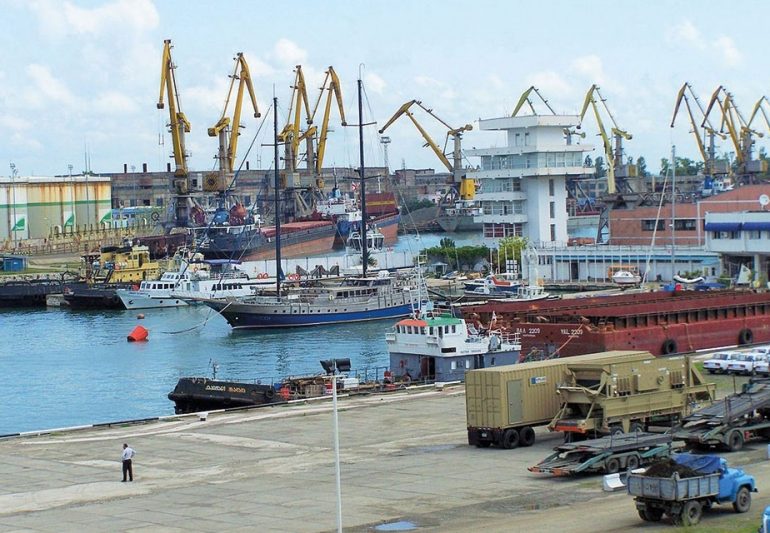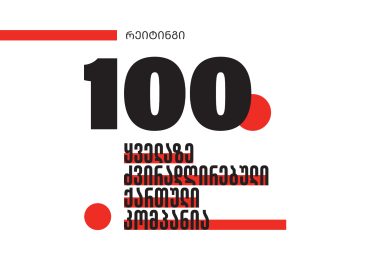When talking about Free Industrial Zones (FIZ), it is important to note that such economic zones are a common practice around the world. There are approximately 4,500 FIZs in 140 countries employing over 70 million people. China operates 45% of all the FIZs. The main attractions of the Free Industrial Zones are special conditions and tax concessions, which act as a strong incentive for drawing investments. The main goal of the FIZ is to increase the revenues of the country by means of promoting export, to generate more employment, to ensure the flow of knowledge and technology by attracting Foreign Direct Investment (FDI) and developing capital and laborintensive industries.
Consequently, Free Industrial Zones have a positive impact on the economy of a country. Nevertheless, in order to achieve this positive impact, it is important to ensure the proper strategic development of these zones, because there are quite a lot of factors that are often disregarded. Wihin the international arena, the majority of successful FIZs are operating in China (Hong Kong, Shanghai, and Shenzhen), the UAE (Dubai, Jebel Ali) and Turkey (Rize, Trabzon and Samsun). There are also a few examples of failed FIZs.
A Free Industrial Zone is a type of free economic zone envisaged by Georgian legislation that offers additional conditions and tax concessions. The FIZ is part of Georgian territory with its own defined borders and special status granted under the law. If we look at international practices, it would be easy to explain the criteria used for selecting Poti as the first city with a FIZ in the region.
The strategic function of Poti is of the utmost importance for the country, and is important on an interregional (Azerbaijan and Armenia) and outer regional level (Kazakhstan, Turkmenistan and Tajikistan), and is now also key within the framework of the Belt and Road initiative launched by Chinese President Xi Jinping in 2013. For these reasons, Poti has a real chance of developing as the main transit hub in this multinational project. The attractive geographic location of Poti provides a marquee opportunity for Georgia to establish the country’s transit hub.
The Poti FIZ was established in June of 2008. The following April, 300 hectares of land on the territory of the extensive former development zone of the city’s port was given to a foreign investor for the period of 99 years. The foreign investor paid $155 million and the agreement allows the company to lease lands located on the territory of the FIZ to investors. Companies that are registered and operate in free industrial zones benefit from tax concessions. In compliance with the Tax Code of Georgia, companies operating in the Free Industrial Zones are exempt from profit tax and taxes on goods imported from abroad. In addition, operations carried out on the territory of the FIZs are exempt from VAT. Properties within the FIZ are also exempt from property tax and the goods produced on the territory are exempt from import tax when imported to other territories of Georgia. Lastly, all income tax is paid on the basis of income declaration.
WHY WAS THE DEVELOPMENT OF THE POTI FIZ HAMPERED?
There is no such thing as a unanimous position regarding Free Industrial Zones in Georgia. However, no one doubts that the Poti FIZ is a very important asset for the economy of the country. Therefore, from an economic standpoint, it is essential to make this FIZ fully operational.
It is a fact that for various reasons in past years, the Poti FIZ did not meet expectations. As you may be aware, the main purpose of any FIZ is to attract investors, which is in correlation with all the determinants that eventually create an investor-friendly environment. And these determinants can be divided into internal and external factors. The main external factor that initially hindered the development of the Poti FIZ is the military political conflict that transpired at the time of its creation, which was compounded by international economic instability. When military forces occupied the territory of the industrial zone during the 2008 August War between Russia and Georgia, it had a profoundly negative impact on potential investors. We should also mention that the world financial crisis significantly reduced the flow of foreign direct investment in developing countries and Georgia was no exception to this.
The internal factor hindering the development of the Poti FIZ was the smallness of the market. Obviously the Georgian market is small, and during the first stage of the development of the Poti FIZ the country did not have the appropriate mechanisms in place to make a non-gravitational impact of expanding the size of the market, since at that time Georgia did not have the opportunities and advantages provided by the DCFTA, nor did the country have a free trade agreement with its biggest commercial partner – China. Making matters worse, a rather asymmetrical free trade agreement between Georgia and Turkey was also progressing at a very slow pace.
It is also important that to mention the visa regime and its related strict policies. Out of the 90 Iranian companies that had left the Poti industrial zone by the end of 2012 due to visa restrictions, very few returned. Despite the fact that international sanctions against Iran have since been lifted, Iranian business entities still face some delays during bank transfers.
One of the most detrimental factors that prevents investors from taking interest in the industrial zone was and still remains the country’s liberal tax policy and the simplified licensing system. It is important that the state identifies the possibilities for introducing legal and other types of tax concessions that would enable the FIZs to make exclusive offers to potential investors. Given the fact that the difference between the FIZ tax rate and the tax rate applied in the rest of the country’s territory is very insignificant, it is obviously hard to make the FIZ operational. However, the practice around the world demonstrates that the success of Free Industrial Zones largely depends on the management.
It is also important to mention the inefficient management of the Poti FIZ and lack of communication between both the executive and legislative branches of the government in terms of setting out strategies. The management of the FIZ failed to implement these strategies in coordination with the government agencies representing the economic bloc and also failed to identify the legislative and administrative obstacles that hinder successful operation of the managing company. Consequently, in 2016 the managing company RAKIA handed over 85% of the stake to the state.
WHAT ARE THE FACTORS HINDERING THE DEVELOPMENT OF THE FIZ AT THE MOMENT AND WHAT NEEDS TO BE DONE?
In order to attract the interest of investors, it is important to ensure the simultaneous presence of various intertwined factors. In other words, a complex approach needs to be taken. Based on foreign experience, the aforementioned tax preferences are hardly sufficient to attract foreign capital. The major priority for them is the presence of the necessary infrastructure. This has been proven by numerous international studies, which show that the government/management of the FIZ must invest $4 for every $1 spent and 70% of this must be spent on the construction of the infrastructure. In Georgia, this policy has never been pursued.
Moreover, one of the main facilitators for attracting foreign capital is a cheap workforce and cheap resources. In spite of the high rate of unemployment, Georgia cannot be considered a country that offers a cheap workforce. On top of that, those employed within the FIZ are not exempt from income tax. This somewhat impedes the process of attracting investors to the FIZ. If we compare the Georgian workforce with the European workforce, we will see that even though it is cheaper, the professional skills of the Georgian workforce are much lower. Therefore, it is important to ensure the availability of state educational/ vocational programs that aim to improve the professional skills of the Georgian workforce.
This experience has shown that the Georgian law on FIZs does not meet the present-day challenges and is rather flawed. For instance, in terms trade, when a FIZ resident company buys certain products, only this company has the right to export these products from the free industrial zone for the purpose of selling them. In other words, the resident company is banned from breaking the consignment into lots and also from engaging other parties in the process of selling. Moreover, there are considerable restrictions in place in terms of service delivery. The FIZ resident companies are banned from establishing business relations with foreign and local companies with the purpose of offering services, e.g. consulting services, transportation services and other types of services. Therefore, it is very important that the legislative base does not restrict the activities that fall outside the realm of trade and production and are equally essential.
It is also important to mention that the immovable property located on the territory of the FIZ is owned by the administration and this discourages certain groups of investors from investing into something that will not be their property. I believe that it would be more beneficial if the law allowed the transfer of land for a maximum of 49 years only to the companies that are willing to make a particularly large investment and will contribute to the development of the high-tech, knowledge-based fields that are characteristic of the ‘cumulative economy’.
From the point of view of taxes, it is problematic that every type of commodity nomenclature produced in the FIZ is subject to 4% import tax when transported to other territories of Georgia. This is problematic because this creates a significant obstacle for positioning oneself on the local market, as well as accessing markets where Georgia has bilateral and multilateral free trade agreements.
When discussing legal amendments, it is necessary that we underscore the need for revoking legal restrictions related to licensing and permissions that are applied in the free industrial zones, e.g. building permissions(other than the norm that is regulated by the law), single and multiple permissions for international shipping on the basis of the international agreements signed by Georgia, permission for international shipping from the territory of Georgia carried out by the non-Georgian shipping companies and lastly, permission for operating free trade points and customs warehouses.
THE ACTUAL PROSPECTS FOR DEVELOPMENT OF THE POTI FIZ
The Poti FIZ represents a truly valuable asset for the country, and making it fully operational is a difficult challenge. There are a number of factors that can assist the Poti FIZ in the purposeful, effective and rapid development of its potential. The efficiency of FIZs can be increased by means of institutional and legal support of the government of Georgia. In addition to the effective engagement of the state, the ‘Poti Mega Port’ construction project launched by the managing company APM Terminals creates a golden opportunity to make the Poti FIZ more attractive for investors and to promote its rapid development. The project envisions the arrangement of a deep water port adjacent to the industrial zone that will eventually provide bulk cargo handling and container cargo shipping services. From the logistical point of view, this will attract more international players within the industry.
However, the controlling reins for the Poti FIZ have been transferred to a large Chinese company ‘CEFC China’. As of 2015, the turnover of this company reached $40 billion. The company operates in the financial, energy, commercial, trade and logistical spheres and plans to develop the Poti free industrial zone by means of attracting investment for modern technology, as well as the improvement of warehouse and logistics.
The Chinese experience holds out hope that the strategic development vision of the new FIZ management will be results-oriented, since it is very important for the Chinese investors to have their own ‘foothold’ in Georgia that will create all the necessary conditions for them to move their products to Georgia in order to take over the European market. CEFC China Energy can make a significant contribution to the enhancement of the idea that Georgia must be viewed as a transportation and logistical hub, since China is the initiating country of the One Belt, One Road Initiative. China’s contribution will play a major role in the development of this free industrial zone, as well as attract large investors. It should also be noted the free trade agreement between Georgia and China that came into effect this year, will give Chinese companies additional incentive to use the capabilities of the Poti Free Industrial Zone.
Based on all the above-mentioned factors, I believe that the Chinese company has the power, knowledge and experience to manage such projects. The appearance of a large Chinese company may breathe new life into the free industrial zone of Poti.

















